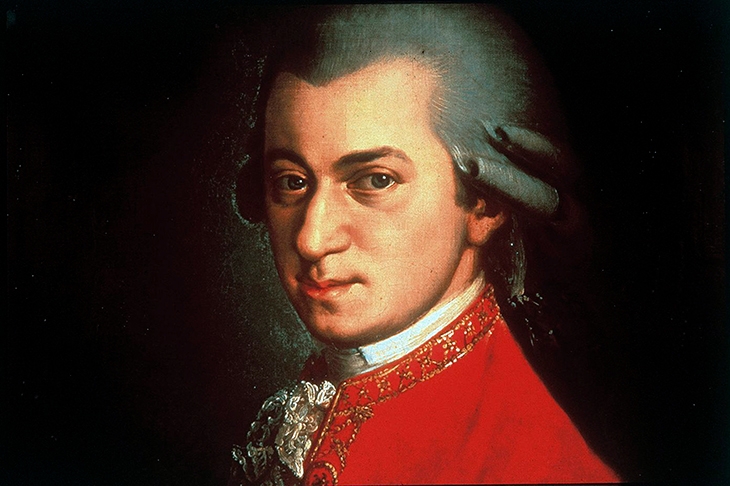‘My dear young man: don’t take it too hard,’ Joseph II counsels a puppyish Mozart, the colour of his hair unknown in nature. ‘Your work is ingenious. It’s quality work. And there are simply too many notes, that’s all. Just cut a few and it will be perfect.’ ‘Which few did you have in mind, your majesty?’, Mozart enquires, the sinisterly oleaginous F. Murray Abraham as Salieri quietly registering the subtle brilliance of Mozart’s grinning lèse-majesté.
Those interested in the subject of Miloš Forman’s 1984 film Amadeus are today faced with a not dissimilar predicament: which of the millions of words written about Mozart should we cut? And would they include any of Jan Swafford’s new cradle-to-grave-and-then-some biography, which comes in at 800 pages and which, for all its clear-sighted and passionate advocacy, can’t quite dispel the feeling that the ground beneath it is fairly well trodden?
When Mozart emerges from Leopold’s shadow his humour and sheer brilliance are fully formed
This would depend entirely on where you place yourself on the biography spectrum. If you like your Nazis obscure or ordinary, this is not a book for you; Swafford’s investigations take him through the front door, not the scullery. Yet if you dislike biographies written by enthusiastic aristocrats or passionate newscasters (Mozart has had his share), if you feel now more than ever the need for public expertise, this is your book. Indeed, music biographies have shifted so much in the past decades that it is somewhat surprising to encounter one done the old-fashioned way.
Done well, of course; Swafford has too much form to do otherwise. And his composer’s eye is drawn to things others miss, much like the eyes of Berlioz and Schumann. There is also a cracker of a subplot, which ends up being anything but: Enlightenment rejection of religious doctrine and the consequent elevation of reason and critical thinking, with immediate ramifications in art and music.







Comments
Join the debate for just £1 a month
Be part of the conversation with other Spectator readers by getting your first three months for £3.
UNLOCK ACCESS Just £1 a monthAlready a subscriber? Log in